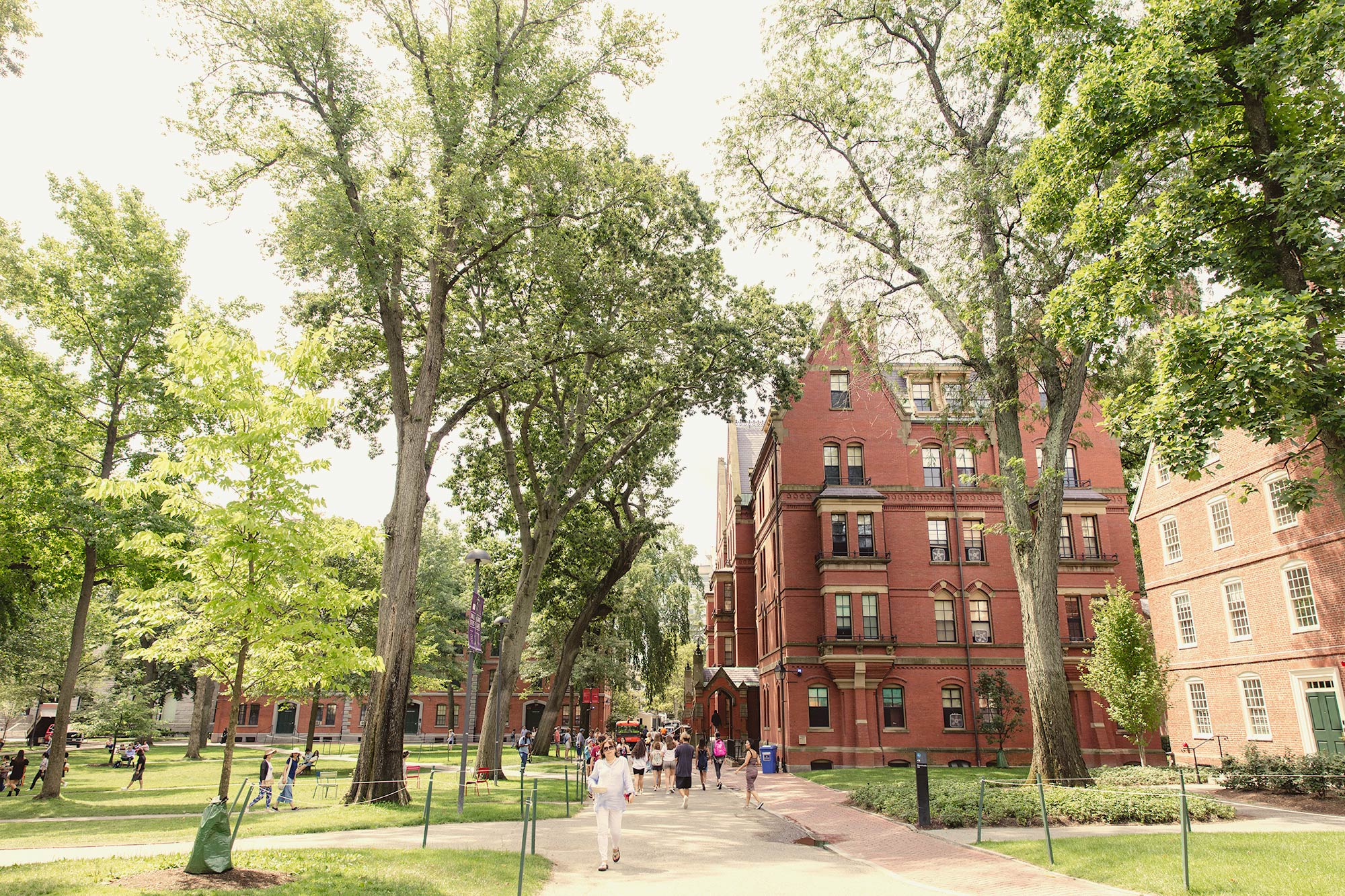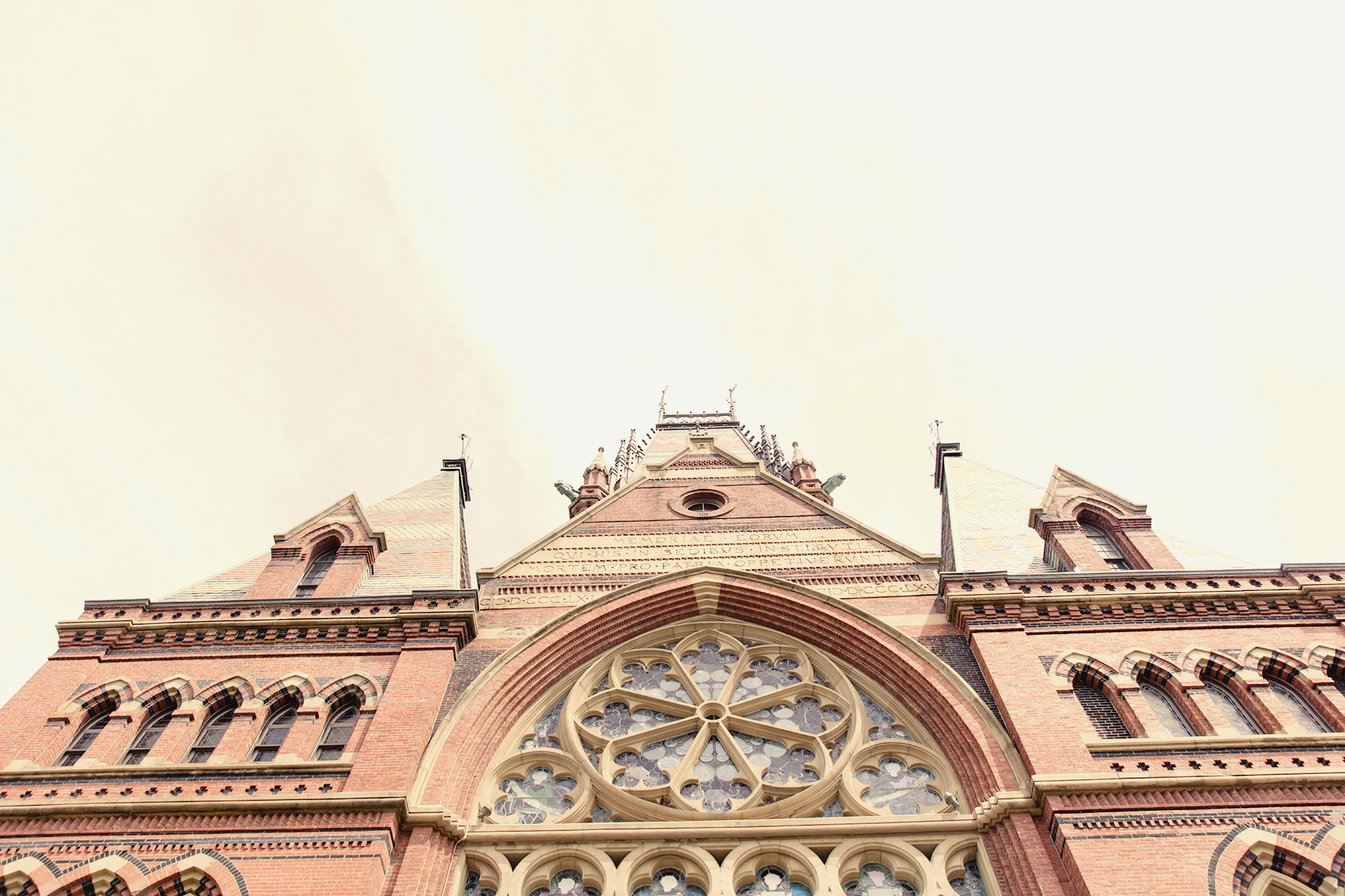Two weeks, many memories
During those two weeks, rising juniors and seniors experienced the college lifestyle on the Harvard campus, attending class for three hours in the morning, then dividing the remainder of their day between an assortment of activities, seminars, and, of course, homework.
Students who participated in session I from the program revealed just how much can be accomplished at Harvard Summer School in two short weeks.
Produce short films, develop the next big app, write fiction, and more
One of the hallmarks of the Pre-College Program is its focus on learning over achievement. Absent are the traditional markers of success like letter grades. Students said the approach made the program collegial, intellectually challenging, and stimulating.
Nicole Lehman, Grant Parker, and Sean Seneviratne—three students who completed a course on entrepreneurship—say they were up late into the evening prior to their final Shark Tank–style presentations. They hadn’t procrastinated: they were simply deeply motivated to apply everything they had learned during the nine days prior and to help each other.
Sean, a student from New Jersey who will be starting his junior year this fall, says, “Right up until the end, even when I was stressed out, I realized, ‘I can do this.’ We’re all here together, being so supportive of each other. And because of that I was successful.”
Students participated in courses with no more than 20 peers. The topics included fiction and essay writing, video production, computer science, American law, philosophy, and many more.
Such diverse topics give students the opportunity to explore something new. Shay Blechinger-Slocum, a senior from Pennsylvania, enrolled in Great Ideas in Computer Science. She says, “I loved it. I started out with no prior knowledge, and I feel that I left with useful skills. The class itself was very difficult, especially for those with no background in computer science. I enjoyed how our professor allowed us to collaborate with more experienced classmates in order to better understand the material.”
Shay particularly liked the final day of class, which involved a coding challenge. The instructor gave each group a problem set, and the first group to finish won a prize. “Although my group did not win,” she says, “I felt I accomplished a lot because I was able to code my own programs without help from the teacher or other advanced students.”
Visit beautiful New England sites, catch a Red Sox game, or get lost in Shear Madness
Students also had time to get out of the classroom and participate in organized activities around New England.
The cultural activities were eye opening to some, including Grant, a senior from Northern California. Grant attended the improv comedy Shear Madness with fellow students and says, “It was a hit! I haven’t seen a ton of plays, and this was a lot of fun. I totally did not expect it to be that interactive.” Such experiences opened Grant up to the possibility of pursuing college on the East Coast.
Each session, students had optional and mandatory activities, including workshops on topics like how social media can impact one’s personal and professional life, a night out at Fenway Park for a baseball game, and weekend day trips to the beaches of Newport, Rhode Island, and Provincetown, Massachusetts.
According to Jacqueline Newcomb, director of the Pre-College Program, balancing academics and recreation is important. “We take the academic aspect of our program very seriously,” she says. “We want to challenge our students to become independent, critical thinkers and to expose them to a wide variety of topics. But they also grow as individuals by exploring new places, experiencing academic life at an Ivy League institution, and spending time with each other outside the classroom. We provide ways for them to do both.”
Experience diversity among Harvard Square and peers
When Nicole reflects on her pre-college experience, she’s struck by the many unplanned moments that left a lasting impression on her. The junior from Ohio encountered many languages as she walked from her dorm room to classroom—something she is not used to back home.
Sean will fondly remember debating with fellow students about national security, capital punishment, and racism in America. “I’ll miss the late-night, intellectual conversations that our peers engaged in,” he says, “not for the sake of our class, but to voice our opinions on real world topics.”
Students also toured neighboring colleges and learned about the admissions process from a Harvard undergraduate. These visits, with down-to-earth individuals who understand how intimidating the admissions process can be, were reassuring to many students. Experiences like this, combined with the academic rigor of the Pre-College Program, helps prepare students for the admissions process and, ultimately, college life.
What’s in store for next year? The program will certainly grow based on its popularity in its first year. But Newcomb is determined to keep class sizes small and continue to offer courses that not only challenge students to work hard but inspire them to learn for learning’s sake.



